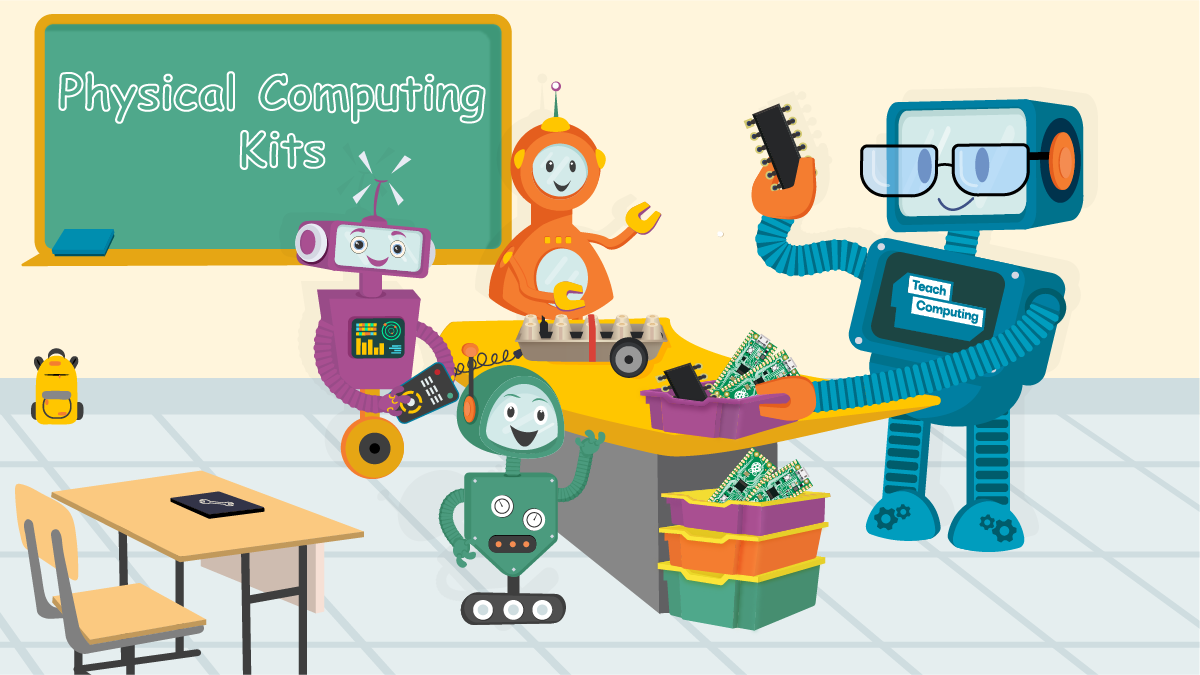New NCCE loan scheme to give more children access to computer programming kits
27 September 2021

Children in primary and secondary schools across England can access the latest technology to learn how to control objects by computers, thanks to a new initiative from the National Centre for Computing Education (NCCE) and its supporters.
Teachers can now borrow classroom technology kits which enable them to teach innovative projects controlled by computers, under this new scheme.
Classroom sets of physical computing kits are now available for primary and secondary schools to borrow from the NCCE’s national network of 34 Computing Hubs based at schools and colleges across England.
The NCCE Computing Hubs are led by schools and colleges with excellence in teaching computing and support schools and colleges to provide a high-quality computing education to all young people. They provide high-quality training courses with generous bursaries; teaching and learning resources; and school-to-school support. From September they now also lend new physical computing kits.
Physical computing means interacting with real-world objects, such as lights, buzzers and motors by programming them with a computer. The NCCE Hubs can now offer classroom trays of Crumble, micro:bit, Raspberry Pi Pico or Raspberry Pi 3 Model B+ devices to enable children to explore the possibilities. The NCCE, funded by the Department for Education, aims to enable teachers to deliver a world-class computing education and offers high-quality professional development, curriculum resources and schools-led support.
Dan Elwick, a Programme Manager at the NCCE, said: “This project is such an exciting opportunity to inspire students of all ages to learn about computing in new and engaging ways by providing kit, content and training for free to schools across England that have not had the budget or expertise to teach physical computing before.
“We’d like to thank the Micro:bit Educational Foundation and the Raspberry Pi Foundation for their generous donations and Redfern Electronics, Pimoroni and Gratnells for their support in providing the equipment needed for the kits.”
Joseph Birks, Director of Redfern Electronics, said;
"When I was at school I was lucky to have a teacher who was passionate about exploring new technology. This set me on the path that eventually led me to develop the Crumble. I am thrilled the NCCE is embedding Physical Computing into its curriculum so that even more pupils will have opportunities to get hands-on with technology and be inspired to create the devices of the future."
Gareth Stockdale, CEO of Micro:bit Educational Foundation, said;
"We believe that computational thinking and coding are fundamental skills for the 21st century. That is why we are so pleased to be able to donate BBC micro:bits to the NCCE's Computing Hubs, supporting teachers to deliver physical computing into the classroom and helping more children to take their first steps to create with technology.”
Each tray contains enough devices for a classroom, along with all the peripherals such as LEDs, motors, wheels, and cables needed to complete units from the NCCE’s Teach Computing Curriculum, designed for children aged from five to 18.
Primary school teacher Suzanne Kennard, from Furneux Pelham in Hertfordshire, had never tried physical computing before. She borrowed a physical computing kit from the NCCE’s London, Hertfordshire and Essex Hub at Saffron Walden County High School.
“As the computing lead in a small school, I am looking to develop and enhance computing across the school,” she said. “I liked the look of the physical computing unit, saw the loan scheme and contacted the Hub.
“We completed most of the sessions from the NCCE’s Teach Computing Curriculum while we had the kit. As my confidence increased, I could set the class challenges to programme colours and sequences. At one point I asked them to make a disco, which wasn’t in the lesson plan! They really benefited from the physical equipment.”
The NCCE has developed new face-to-face courses which support the physical computing kits and introduce the Crumble, micro:bit, and Raspberry Pi Pico. In addition, the NCCE also provides online courses for teachers to develop their physical computing skills. Details of all courses, both face to face and online, are available here.To find out more about borrowing a classroom kit for your school, contact your local hub via our Computing Hub homepage.